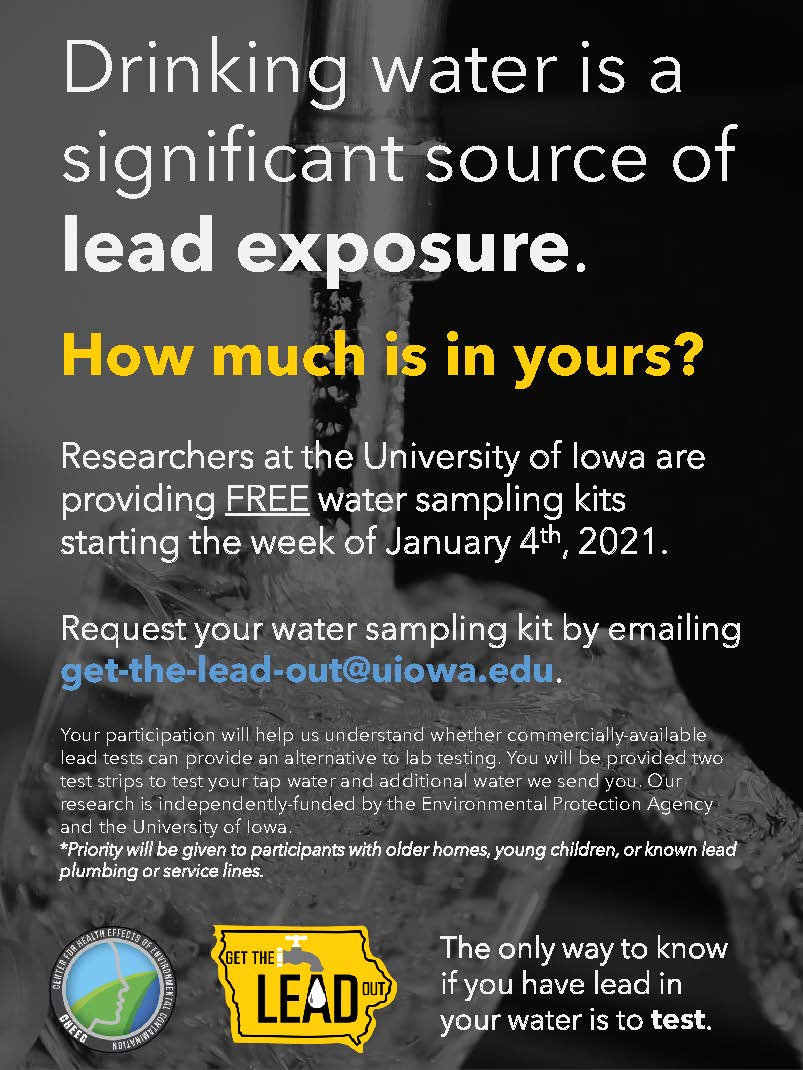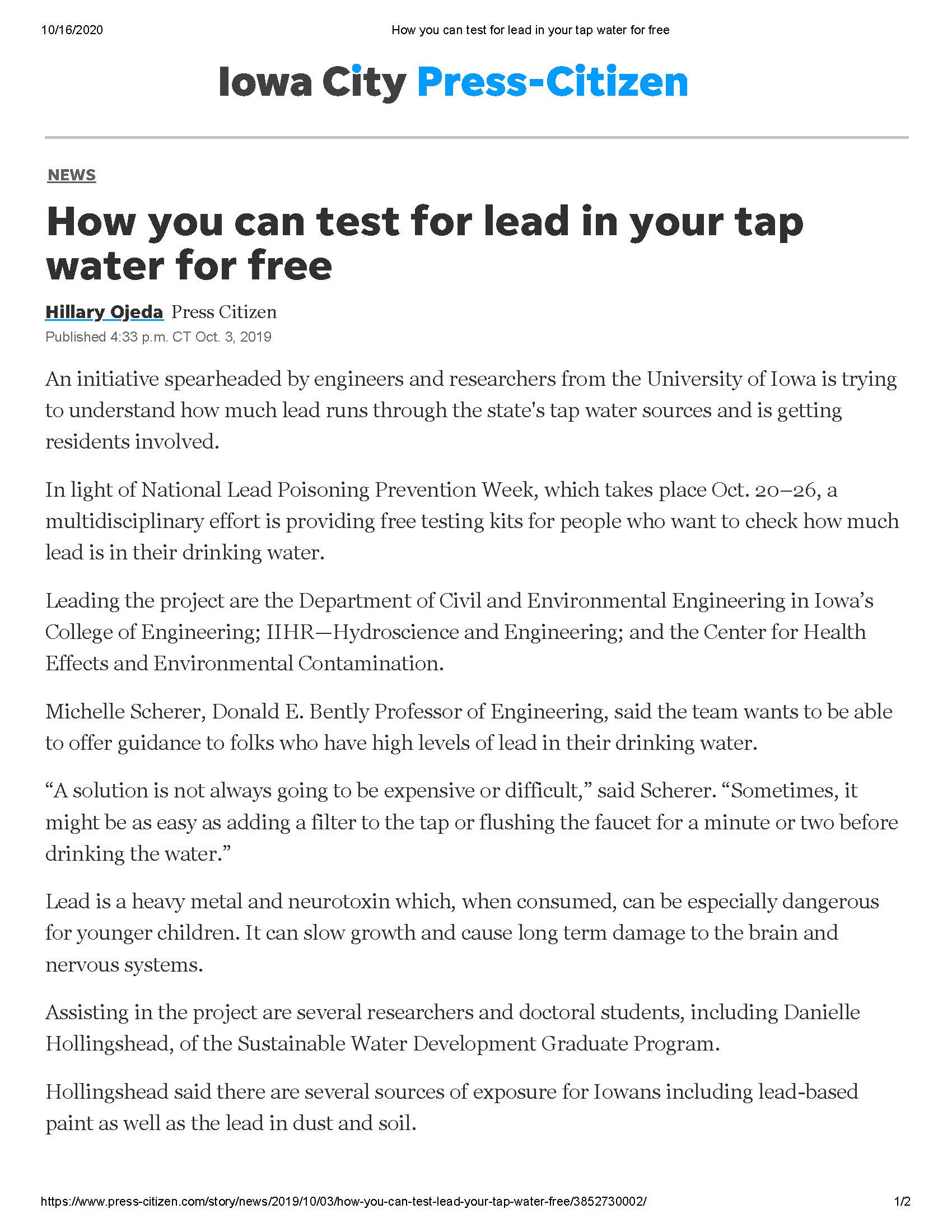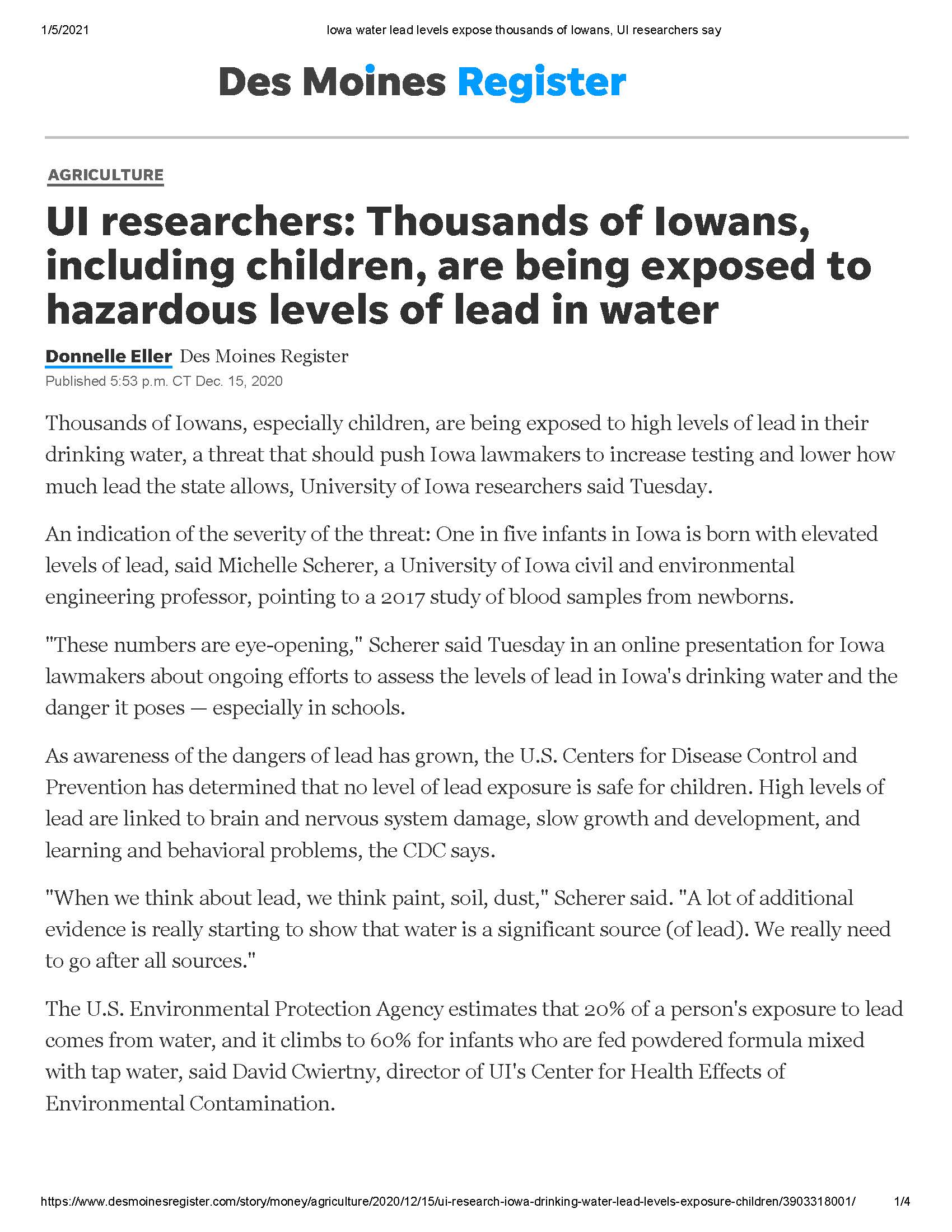Get the Lead Out Iowa
Get the Lead Out (GTLO) of Iowa
Get the Lead Out (GTLO) of Iowa is a water testing program at the University of Iowa. Researchers at the University of Iowa Department of Civil and Environmental Engineering working with the Center for Health Effects of Environmental Contamination (CHEEC). GTLO is offering free drinking water testing through a mail-in service to test for lead, copper, and other water quality measurements (such as nitrate and arsenic). Priority will be given to participants with older homes (pre-1986), young children (age 6 or younger), or known lead plumbing or service lines.
To request a free sampling kit, individuals should visit https://gettheleadout.uiowa.edu.
The water sampling kits include three bottles, a set of instructions, and a short questionnaire. Participants will fill up the bottles, fill out the questionnaire, and return the boxes to us for extensive laboratory testing. After about three weeks of sample analyses, we will send out personalized drinking water reports. We will use the responses from participants to understand the risk factors that drive lead in Iowans’ drinking water.
About Lead in Water
- The Centers for Disease Control and Prevention and the Environmental Protection Agency state that there is no safe level of lead.
- Lead is a heavy metal and neurotoxin, which can be especially dangerous for children when consumed. It can slow growth and cause long term damage to the brain and nervous systems.
- Twenty percent of a person’s exposure to lead can come from tap water. Exposure for formula-fed infants can jump up to 40 to 60%.
- The only way to know if you have lead in your drinking water is to measure it. You cannot see it, smell it, or taste it.
- UI researchers: Thousands of Iowans, including children, are being exposed to hazardous levels of lead in water (LINK)
Below are GTLO related documents including a GTLO marketing flyer, an example news article from the 2019 program, and a related article on lead in Iowa drinking water.
GTLO Flyer Example News Article Lead in Iowa drinking water


